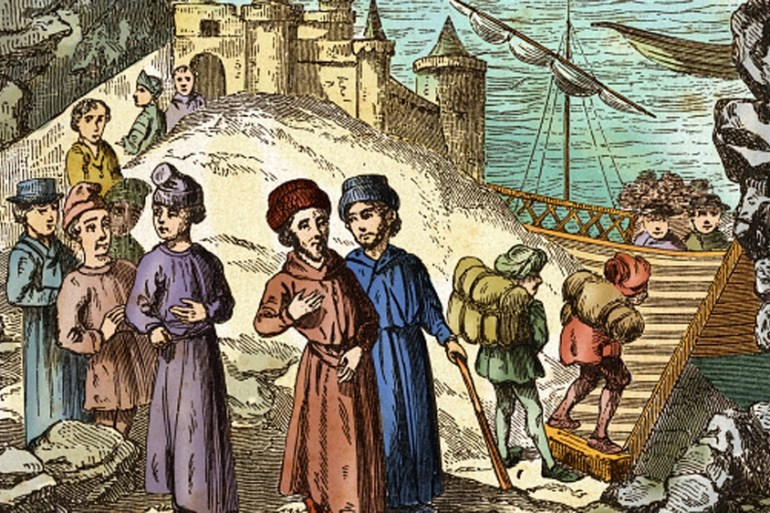March 31, 1930 -
The Motion Pictures Production Code (popularly known as the Hays Code after its creator Will H.Hays) is instituted, imposing strict guidelines on the treatment of sex, crime, religion and violence in film for the next 38 years
While the Code to Govern the Making of Talking, Synchronized and Silent Motion Pictures was published in 1930, it was not rigidly enforced until 1934 following more threats of censorship by the Federal Government and the widespread threats of Catholic boycotts of immoral movies. The studios granted MPPDA full authority to enforce the Production Code on all studios.
March 31, 1943 -
Ronald Walken, possibly the most imitated actor in America, was born on this date.
In his almost 40 years career in film, he has acted in well over 90 films. He rarely turns down a part, under the belief that making movies (whether they turn out good or bad) is always a rewarding experience.
March 31, 1953 -
Stanley Kubrick's first feature film, a war drama titled Fear and Desire, premiered in New York on this date.
Stanley Kubrick disowned the film soon after it's release and wanted to make sure it was never seen again by not re-releasing the print. What he didn't know was that Kodak when making the print had a policy of making an extra print for their archives.
March 31, 1957 -
The original version of Rodgers and Hammerstein's Cinderella, starring Julie Andrews, aired live in color on CBS on this date (only black-and-white kinescopes exist today.)
The only production of the Rodgers and Hammerstein version to be telecast while Oscar Hammerstein was still alive. He died in 1960, five years before the second television production of the musical was telecast.
March 31, 1975 -
The TV show Gunsmoke, which premiered in 1955, aired its last original episode on this date.
The show was canceled in September of the previous year. According to James Arness, the cancellation caught them by surprise. The cast and crew were expecting the series to go at least three more years.
March 31, 1983 -
All good things must come to an end: the sixth and final Monty Python film featuring all six member of the troupe before Graham Chapman's death in 1989, Monty Python's The Meaning of Life premiered in the US on this date.
Monty Python refused to show Universal Studios a movie script, figuring, as Eric Idle said, "If we couldn't work out how to make a Monty Python film, they couldn't tell us." Instead they showed them a poem, which was a summary of this movie, and a budget projection. "And to their credit," says Idle, "they paid for the film on that." Idle recites the poem on the DVD version of the movie.
March 31, 1987 –
20 minutes into the future, US network television’s very first cyberpunk series, Max Headroom premiered on ABC-TV, on this date.
The futuristic graphics used on the show were created by a top-of-the-line computer of 1987, a Commodore Amiga.
March 31, 1994 -
Madonna appeared on The Late Show with David Letterman on this date. She dropped the f-bomb more than a dozen times, exchanged less- than-friendly barbs with Dave and then stubbornly refused to leave the set.
This made the episode the most censored in American network television talk-show history; it also resulted in some of the highest ratings of Letterman's late-night career.
The extra credit question, who was the musical guest that evening? - Counting Crows.
March 31, 1999 -
The Wachowskis', (formerly known as The Wachowski Brothers,) groundbreaking sci-fi action thriller, The Matrix, starring Keanu Reeves, Carrie Anne Moss and Laurence Fishburne, premiered on this date.
Laurence Fishburne stated that once he read the script, he did not understand why other people found it confusing. However, he had a doubt if the movie would ever be made, because it was "so smart".
March 31, 2000 -
Stephen Frears' adaptation of Nick Hornsby novel, High Fidelity, starring John Cusack, Jack Black, Lisa Bonet, Catherine Zeta-Jones, Joan Cusack, and Tim Robbins and featuring a cameo by Bruce Springsteen, went into general release in the US on this date.
John Cusack and the screenwriters wrote the script with Jack Black in mind for the role of Barry. He nearly turned the role down, but reconsidered.
Another failed ACME Product
Today in History:
March 31 1492 - (This tidbit is brought to you by Cerveza Alhambra - the Irony of Bottled Beer!)
With the issuance of the Alhambra Decree on this date, King Ferdinand and Queen Isabel expel all of the Jews from Spain, except those willing to convert to Christianity. Even with the infusions of gold and silver arriving during the 16th century from the Americas, this is an act from which Spain never recovered.
By expelling their merchant and banking class, Jews and Muslims, the country was left ill-equipped to process the new wealth, which ultimately winds up in the coffers of other countries and squandered on disastrous military campaigns.
I guess that didn't quite go the way they had planned.
March 31, 1811 -
Robert Bunsen, whose name we associate with the burner, was a 19th-century German chemist of some renown, was born on this date. He worked on explosive organic arsenic compounds--leading to the loss of one eye--and, later, on gases from volcanoes, geysers and blast furnaces.
With Gustav Kirchhoff, he contributed to our understanding of the meaning of spectra lines. (He also gained note for not bathing--one woman of polite society remarked that Bunsen was so charming that she would like to kiss him, but she would have to wash him first.)
March 31, 1889 -
French engineer Gustave Eiffel unfurled the French tricolor from atop the Eiffel Tower, officially marking its completion on this date, but its history dates back to Gallic times.
Documents that have been carbon-dated to roughly 200 B.C. indicate that King Catatonix of the Hellatians decreed, for no apparent reason, the construction of a big tower on the very site where the Eiffel Tower can be found today.
In Caesar’s Reflections on the Garlic Wars, the Roman general reminisces on having found “a curious wooden tower, tall and strange.” Baffled by this peculiar cultural monolith, and never happy to be baffled, he burned it to the ground.
Some four centuries later, with the western Roman Empire in collapse, wild-eyed Gallic nationalists rebuilt the tower using cheese instead of wood. They called it La Grande Fromage, from which we get the expression, The Big Cheese.
During subsequent invasions by and entanglements with Normans, Saxons, Angles, Ostrogoths, Visigoths, and Lolligoths, the Tower was repeatedly destroyed and rebuilt, always for no apparent reason. It had become a sort of habit by now, a national obsessive-compulsive disorder.
Rene Descartes was born on March 31, 1596. Descartes said that he existed because he thought, and although he said it in Latin everyone still had to admit that it looked like Reason had finally entered the world.
Therefore the Franks (who now called themselves the French, primarily to irritate Germany) lost interest in the tower, and at last abandoned the effort.
Unfortunately, in 1870 German chancellor Otto von Bismarck defeated the French army in a Sedan and laid siege to Paris. This made the French lose their heads (see also the French Revolution). They forgot all about Reason and made Gustave Eiffel build a Tower, this time using steel, which was stronger than cheese and not quite as flammable as wood. It stands to this day, a proud monument French culture, without which we would not have Champagne, Camembert, Brigitte Bardot, or Marcel Proust.
Crayons have been around for 118 years. The Crayola brand was born in 1903 when cousins Edwin Binney and C. Harold Smith released the their first crayon box with its eight-count box that was sold for only a nickel. March 31 marks National Crayon Day.
The average child will go through hundreds of crayons in a decade. Apparently, according to the intraweb, the unique smell of crayolas is created in large part by stearic acid, which is a derivative of beef tallow—more commonly known as beef fat. The ingredient is used to deliver a waxy consistency.
Who knew?
March 31, 1927 -
César Chávez, the civil rights hero and labor leader of one of the most abused and exploited groups in America, was born on this date.
He co-founded the National Farm Workers Association in 1962 to help migrant workers—and like Gandhi and Martin Luther King Jr., was a spiritual figure and crusader for nonviolent social change, using peaceful tactics such as fasts, boycotts, strikes and pilgrimages. When he died in 1993, at age 66, more than 50,000 marched in his funeral under a hot California sun.
March 31, 1948 -
The US Congress passed the Marshall Plan to rebuild war-torn Europe after World War II, on this date.
Recognizing the need for economic stability on the continent, former Army Chief of Staff George Marshall responded to the high unemployment and food shortages with an initiative that provided $13 billion in aid to 18 European countries, and gave each country a role in creating its own plans for recovery.
March 31, 1959 -
The Dalai Lama was forced to leave Tibet, after the Red Communists (Evil Bastards) make it very unpleasant for him to stay, on this date.
He accuses the Chinese of making genocide against the Tibetan people, by systematic destruction of Tibetan culture and execution of thousands of prominent citizens (At the rate I'm going, I'll be lucky to get takeout delivered to my house.)
March 31, 1967 -
At the Finsbury Park Astoria Theatre in London, Jimi Hendrix sets fire to his guitar for the first time, and goes to the hospital after the show with minor burns.
Hendrix didn't set any more guitars literally on fire on that tour, although he would repeat the stunt during his band's legendary performance at the Monterey International Pop Music Festival a few months later.
March 31, 1968 -
In a televised speech to the nation on this date, President Lyndon B. Johnson announced a partial halt of bombing missions over North Vietnam and proposed peace talks.
Citing national divisions over the war in Vietnam, President Johnson also announced that he would not run for re-election. The stock market soared the next day.
March 31, 1995 -
The president of the Selena Fan Club, Yolanda Saldivar, killed the Tejano music popstar Selena in Corpus Christi, TX. "It just went off, I didn't mean to do it. I didn't mean to kill anybody".
That might be true, but the jury did not believe her.
Remember folks, never let a crazy fan with a gun license and bad credit be the head of your fan club.
And so it goes.



The Alhambra Decree was a short-sighted move, but on the island of Menorca (and other lovely places) one can enjoy a cerveca Alhambra with one's tapas.
ReplyDeleteLa Grand Fromage indeed
ReplyDelete